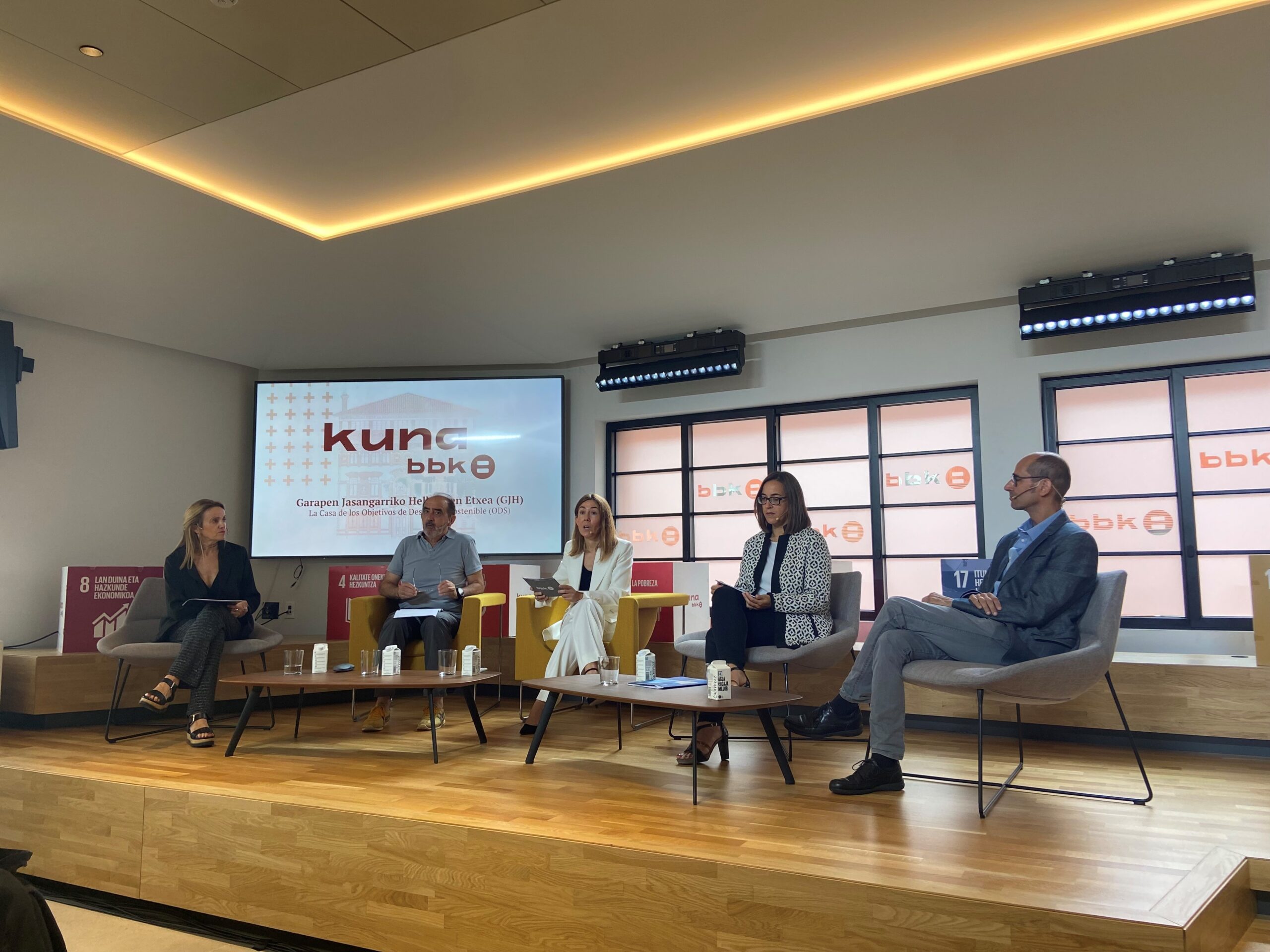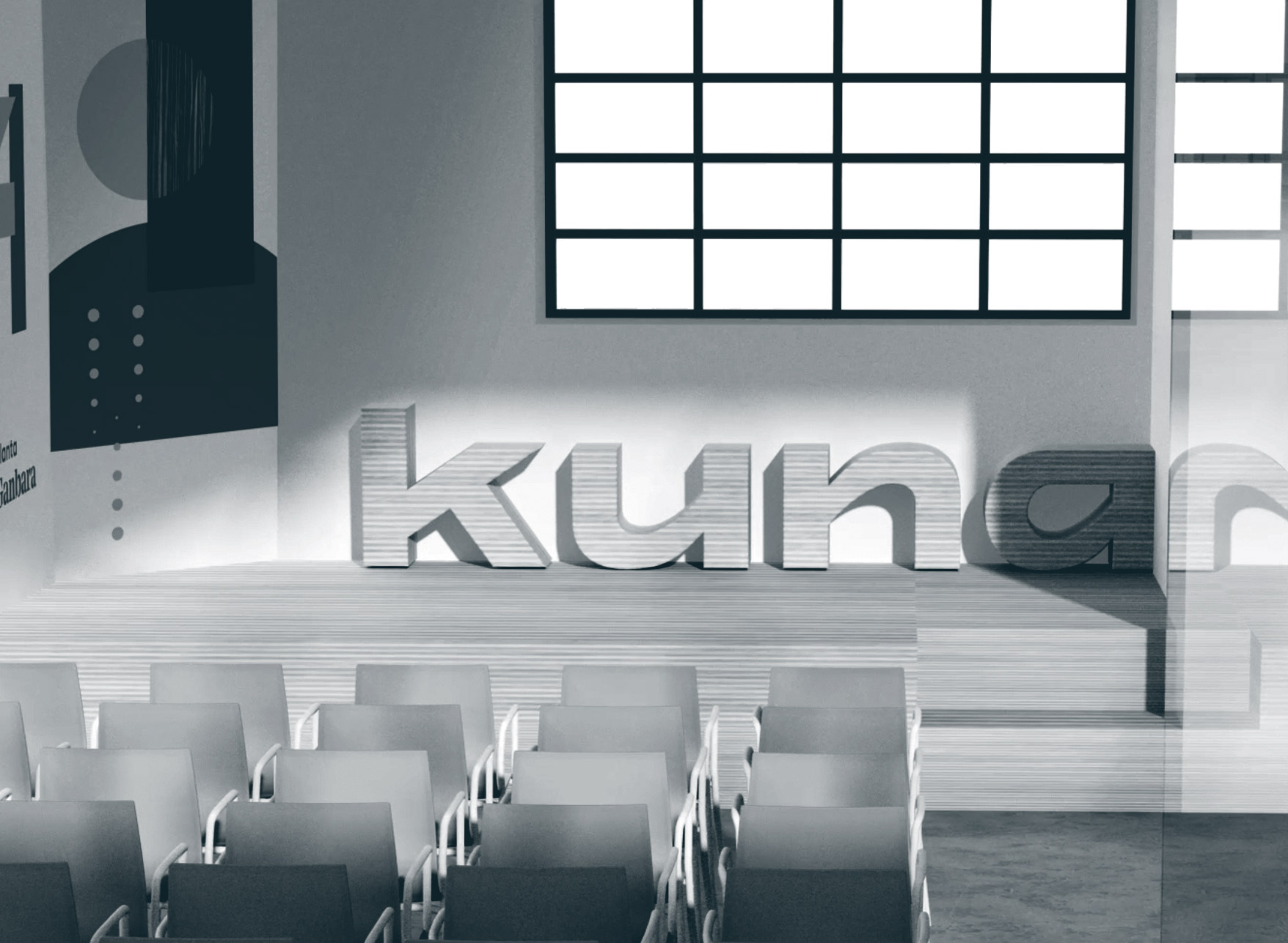
BBK Kuna promotes 3 projects through Kuna-co Proiektuak which will generate social impact in Bizkaia
BBK Kuna: The Home of the SDG, Sustainable Development Goals, has selected three projects through the KUNA-CO PROIEKTUAK call. With this initiative, the entity wants to promote Innovation Projects which aim to seek solutions to the challenges associated to Agenda 2030 in the Basque Country in general and Bizkaia particular, and which, in turn, will lead to a change in the territory of Bizkaia.
These projects respond to the challenges identified by BBK Kuna Institutoa, a Think Tank presided by Daniel Innerarity and made up by key voices within the territory, which, from BBK Kuna, prioritise what are the future challenges to address in the years to come.
The call promotes working in partnership, which means the projects objective of this call are led by entities which articulate their collaboration by means of a multiagent Consortium. All the projects include a non-profit entity which coordinates the project.
Nora Sarasola, Director of BBK; Daniel Innerarity, President of BBK Institutoa; Karmele Acedo, representing the Project led by Grupo SSI; Jaime Zufia, Coordinator of AZTI Efficient and Sustainable Processes, representing the project submitted by AZTI; and María Lambarri, coordinator of strategic projects in Deusto Social Lab, representing the project coordinated and led by the HUME research team, have participated in the presentation of the three projects selected.
Research-action
The Kuna research-action methodology aims to ensure that the projects test theory according to its effectiveness in action, seeking to produce valid and actionable knowledge. The research objective is not to examine reality but to change it. The projects include research on the selected topics, and also ensuring a result in terms of a practical application, and a tangible and transferable action. Each research-action project result which is a beneficiary of the call will receive financial support of up to 50,000 euros.
The projects will have the vocation of connecting with the BBK Kuna community, with the rest of the BBK Kuna projects, building partnerships to improve results, and can be developed in the BBK Kuna premises
PROJECTS SELECTED IN THE 2022 CALL
- MIGRATION AND PROSPERITY: INCLUSIVE ECONOMIC AND SOCIAL DEVELOPMENT.
The ERTZEAN Project aims to improve the employability and quality of life of persons of foreign origin who work in the care sector, by designing and providing a service for guidance, accompaniment, and training for persons who are dependant and with disabilities, at home and/or in social institutions.
The project plans to carry out an exhaustive analysis of the social and labour reality of people of foreign origin and/or descent employed in the care sector, and domestic service in the Greater Bilbao. The analysis will make it possible to detect specific needs, from the people themselves, for the entire care system and the labour market. By doing so, the project sets out different indicators, from the social changes the project intends to generate, and which can be measured at a micro individual level, to a meso or systemic level, from an economic and labour market perspective.
The project will be carried out, on one side by Grupo Servicios Sociales Integrados S.Coop.Grupo SSI, the Fundación Social Ignacio Ellacuría, Ikuspegi – Observatorio Vasco de Inmigración, and the University of Deusto.
- HUMANISTIC DIGITAL TRANSITION.
This project is carried out by the HUME group (Humanism and Management and Economics) of the University of Deusto with the collaboration of Wikitoki and actors from four different fields: cybersecurity, protection of personal data, open government, and civil society.
It consists of conducting research aimed at identifying and assessing the accountability mechanisms in the governance of the Technological-Digital Transition (TTD) in Bizkaia, aimed towards the Sustainable Development Goals (SDG).
The aim is to further explore, and measure the pulse of one of the “major transitions” decided by municipalities, Provincial Councils and by the Basque Government for the years to come: the technological-digital transition, which is combined with the environmental-energy transition and the social and health transition (“Strategy for the Digital Transformation of Euskadi 2025”). This refers to the integration of digital technologies in businesses and their impact on society.
The project will make efforts to draft a multi-dimensional report, to assess the impact of this transition by always placing the focus on accountability, promoting citizens’ participation, placing individuals in the centre of the technological processes, and creating more horizontal governance relationships. The initiative may be complemented with future studies at a larger territorial scale and with other governance sectors.
- SUSTAINABLE GASTRONOMY:
The main goal of the project is to create, and validate, an operating model for the gastronomy sector and its value chain in Bizkaia, which incorporates sustainable development principles and may be used as a valuation and improvement element for the activity, and the survival of the sector on the long term.
Its social impact is very relevant because of the importance of the sector in the economic and business fabric of Bizkaia, and therefore in the number of jobs it employs.
There is also, the need to position the sector with regard to competitor regions and improve the positioning of Basque gastronomy in terms of sustainable development, in order to promote responsible tourism in the Basque Country.
This project stands out due to its potential as a driver through which the replicability of the model and its capacity to influence other areas and sectors.
The leader entity of the project is the Fundación AZTI-AZTI Fundazioa along with the participation of the Basque Know How Fundazioa (BKHF) and the Gorka Izagirre Winery (BGI). In the case of BKHF, it will bring together and coordinate the gastronomy sector and its value chain. For its part, the Gorka Izagirre winery, will act as a liaison with the primary sector and provide the project with its knowhow, as well as the necessary means to approach this part of the project.
